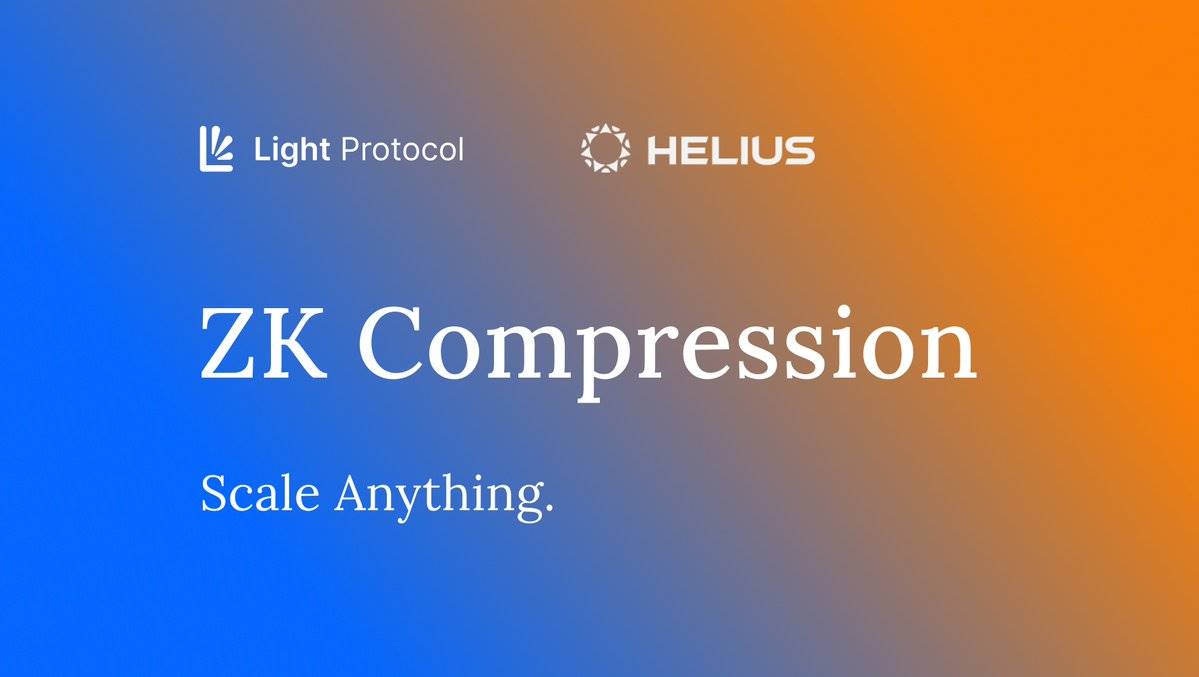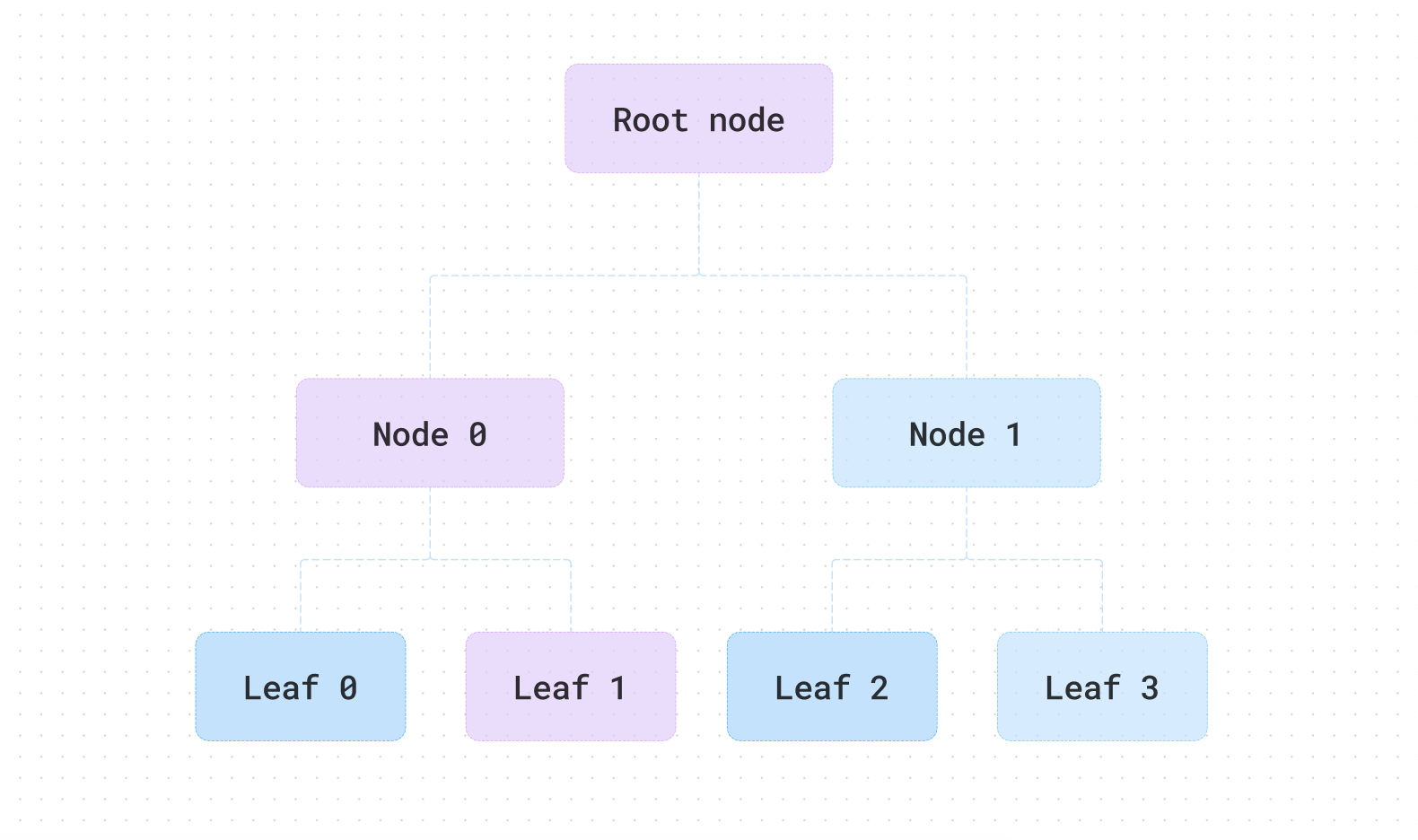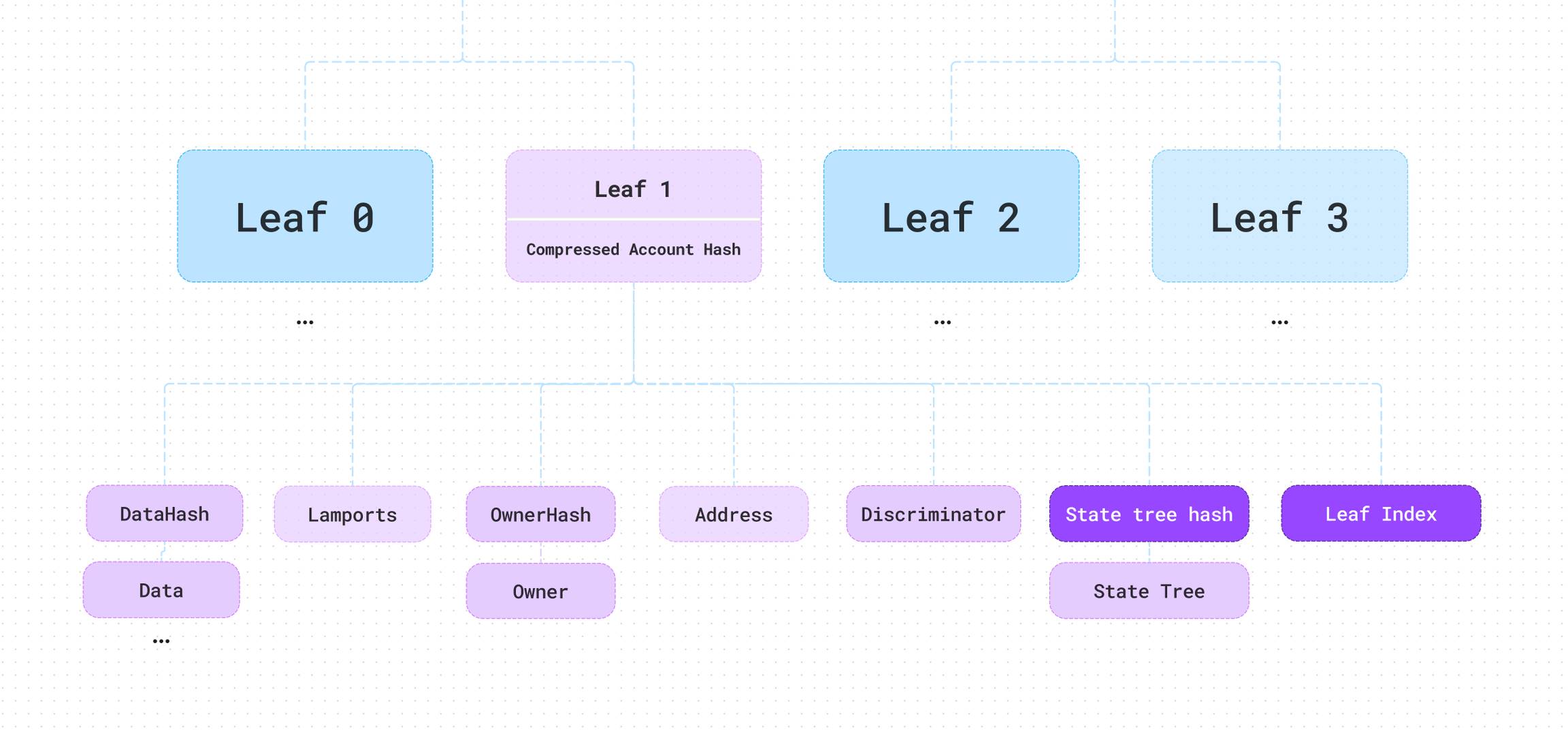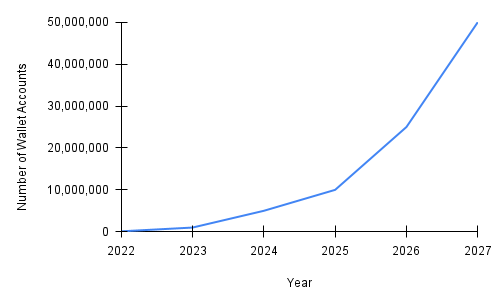
The Next Trillion Dollar Wave - AI Narrative in Crypto: Who Are the Top Players?
Dec 12, 2024 21:40
Written by TechFlow
The market is facing a liquidity crunch, prompting various projects to look for new opportunities to thrive.
New projects often announce lavish funding rounds to capture attention, while established ones are reinventing their narratives and branding to rejuvenate their appeal.
For example, just a few days ago, Light Protocol, a well-established privacy protocol on Solana, introduced a new concept designed specifically for Solana: ZK Compression.

According to their official Twitter, the goal of ZK Compression is to enable native zero-knowledge (ZK) computations on Solana, which could drastically reduce the costs associated with managing tokens and accounts on the platform.
The slogan "Scale Anything" raises an interesting point; given Solana's reputation for speed and performance, is there a need for ZK to further enhance its scalability? What opportunities might this new concept bring to the project itself?
Think of ZK Compression as using ZK technology to reduce the costs of maintaining blockchain "state" on Solana.
What is the state cost?
On Solana, "state" refers to the data stored on blockchain, like account balances and the storage data for smart contracts. Every time new data is added or existing data is modified, it takes up storage space and consumes computational resources.
Thus, "state cost" refers to the expenses incurred from storing and maintaining this data on the blockchain. Essentially, it's about making the storage and upkeep of on-chain data more affordable.
But isn't Solana already affordable? Why cut these costs further?
According to Light Protocol’s comparisons, the reduction is significant. Whether it’s creating contracts or accounts, the costs with ZK Compression become notably lower, with potential reductions by up to 160 times for contracts and 5,000 times for accounts.

No public blockchain dislikes the idea of lower usage costs. On the path where "cheaper" is always better, various Layer 1 and Layer 2 networks compete against each other, each trying to lower their costs and increase their speed. Now, it seems this competitive trend is also starting to spread within Solana itself.
But how exactly does Light Protocol achieve this compression? The answer lies in the concept of the "State Root."

ZK Compression leverages a technology called the "State Tree." Picture the State Tree as a highly compressed folder that bundles all account information and data, storing only the most crucial parts on the blockchain.
This might sound familiar—it’s similar to the fundamental concept of the Merkle tree in blockchain, where each node is the hash of its child nodes. Ultimately, all the data consolidates into a single top-level hash, known as the "State Root."
Understanding this setup simplifies the workings of ZK Compression:
Compressing Account Hashes:
Each account's data is transformed into a hash that is placed in the leaf nodes of the State Tree. These hashes include not just the account details but also their positions within the State Tree, making each account hash unique.
On-Chain State Root:
The top hash of the State Tree, the State Root, is stored on the blockchain. This State Root acts like a fingerprint for the entire tree, validating this fingerprint ensures that all the data in the tree is complete and unaltered.
Data Storage:
Instead of storing detailed account data directly on the blockchain, it’s stored as calldata in Solana’s more cost-effective ledger space. The blockchain only houses the State Root and some fundamental metadata, reducing storage costs while safeguarding data security.

To ensure the integrity of this compressed data, ZK Compression also utilizes Zero-Knowledge Proofs (ZKPs). This technology enables the verification of data's authenticity and completeness without revealing its specific contents. Essentially, even though the data is compressed, we can still trust that it is accurate and secure.
Crucially, developers don’t need an in-depth understanding of Zero-Knowledge Proof technology to leverage these new features. They can simply follow the integration steps outlined in Light Protocol’s documentation.
Efficiency Summary: On Solana, only key information is stored in on-chain accounts, dramatically reducing storage costs.
This strategy mirrors the design philosophy of Layer 2 solutions but is essentially an optimization of the internal storage structure within Layer 1.
Let's reevaluate whether enhancing scalability is necessary for Solana, given its already high speed.
The answer is definitively yes.
The numbers show substantial increases in daily transaction volumes, dApp activity, and on-chain wallet usage on Solana. The competition for blockchain space is intensifying, pushing the demands for improved performance and cost efficiency even higher.

Therefore, making things cheaper aligns with a politically correct trend, and Light Protocol’s initiative for ZK-based state compression appears well-timed on a macro level.
However, in the current market climate, where the initial frenzy has subsided and on-chain transaction activity has decreased, the benefits of enhanced infrastructure might not be immediately clear.
Narratives and primitives typically focus on looking ahead from today’s vantage point. Only those with foresight manage to garner attention and fuel hype.
For Light Protocol, delving into ZK Compression aligns well with their area of expertise.
According to Rootdata, the project was established in 2021 with aims to develop fast, privacy-focused payments, encrypted order books, and public blockchain games with private states on Solana.
It’s worth noting that the project also secured $4.5 million in seed funding led by Polychain in 2022; pursuing ZK state compression remains within their technological wheelhouse.
For retail investors and Alpha hunters, since this project leans more towards B2B, waiting for official announcements to engage with testnets (if available) is a prudent approach.
In the crypto industry, debating the actual need for a product is often a low-return argument; sometimes, creating demand and steering the narrative is a form of strategic speculation that’s seen as the right move.
Recommendation
dappOS
The Ultimate Intent of Web3: How dappOSs Intent Assets are Unlocking True Asset Appreciation for You
Nov 11, 2024 15:52

In-Depth Analysis of BasedAI: Balancing Privacy and Efficiency in Large Language Models - The Next Bittensor in AI?
Jun 06, 2024 21:41

From Graduate to CEO: Nexus Secures $25 Million Led by Pantera - Whats the Story?
Jun 06, 2024 19:01